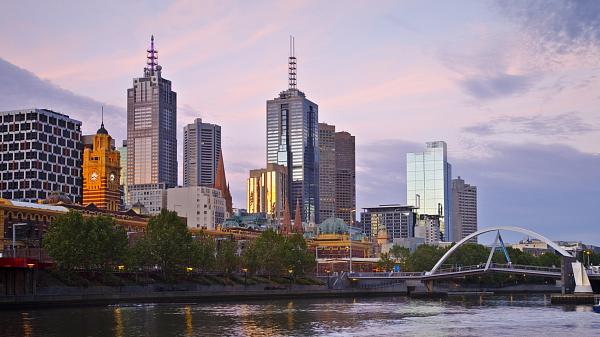Australians turn clocks forward Sunday, October 2
Many Australian cities, such as Melbourne, will start daylight saving time on October 2, 2011.

Many Australian cities start DST on Oct 2, 2011.
©iStockphoto.com/Linda & Colin McKie
Daylight saving time (DST) in Australia starts at 2am (02:00) local time, when the clocks move forward to 3am (03:00), on Sunday, October 2, 2011. New Zealand, which neighbors Australia, already started DST on September 25, 2011.
Where do the clocks turn?
These places will start daylight saving time on October 2, 2011:
- Australian Capital Territory. Eg. Canberra.
- Lord Howe Island – the clocks move 30 minutes ahead, instead of one hour forward.
- New South Wales. Eg. Sydney.
- South Australia. Eg. Adelaide.
- Tasmania. Eg. Hobart.
- Victoria. Eg. Melbourne.
DST ends for these areas on Sunday, April 1, 2012, when the clocks turn one hour back at 3am (03:00) local time.
Clock changes around the world.Several Time Zones
Australia has different time zones due to its large geographical size.
Find the best time to call across time zones.Australians living in the following areas do not observe DST:
- Norfolk Island.
- Northern Territory. Eg. Darwin.
- Queensland. Eg. Brisbane.
- Western Australia. Eg. Perth.
New Zealand ahead with DST
New Zealand already started DST one week ahead of Australia. New Zealanders began their daylight saving schedule on Sunday, September 25, 2011. The clocks moved forward one hour from 2am (02:00) to 3am (03:00) local time. New Zealand and Australia will both end DST on Sunday, April 1, 2012, when 3am (03:00) becomes 2am (02:00) local time. timeanddate.com has background information on New Zealand’s time.
However, before the clocks turn backward in 2012 for Australia and New Zealand, another neighboring country in the Pacific, Samoa, will actually change the dateline on December 29, 2011, in order to accommodate business relations with its neighbors. In the meantime, keep an eye on various countries observing daylight saving time around the world in 2011.
What does DST mean for Australians?
Australians who welcome DST see many advantages, such as having more afternoon daylight for outdoor activities, which could be a boost to tourism. On the other hand, there are those would prefer not to have DST due to health concerns and other reasons.
There was a push for DST in both Queensland and Western Australia in recent years but both states said “No” to daylight saving time.
Did you know…?
Did you know that some media refer to daylight saving time as “daylight savings time”? The term “daylight saving time” is considered to be correct.